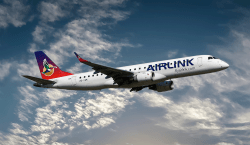


Econet, NetOne, Telecel mobile data tariffs lower than SA mobile networks
ZIMBABWE’S main mobile networks – Econet Wireless, NetOne Cellular and Telecel Zimbabwe – have the 14th, 13th and 10th cheapest mobile data tariffs respectively among their main mobile network operator peers in Africa, Asia and Europe, according to a recent survey comparing mobile data pricing across nearly 30 key data markets.
The survey reviewed the price of 1GB of data among comparable mobile markets to Zimbabwe, including South Africa, Zambia, Malawi, Kenya, Nigeria and India in US dollars (USD). It used an exchange rate of 1 US Dollar to 3.5 Zimbabwe bond notes or electronic bank transfer. (The 3.5 rate used for the analysis lies between the official 2.5 exchange rate and an Old Mutual Implied Rate of 4.4 as of March 6, 2019)
The survey found that in Africa, Econet Wireless Zimbabwe, NetOne Cellular and Telecel Zimbabwe’s mobile data tariffs per 1GB ranked 8th, 7th and 5th lowest, behind the Nigerian operators Glo Mobile, Airtel Nigeria, MTN Nigeria and 9 Mobile which had the lowest data charges among the sample of 17 African operators.
Most significantly, the survey showed that in USD terms, Zimbabwean data prices were lower than those of neighbouring South Africa’s mobile networks Vodacom, MTN South Africa, CellC and Telkom SA.
For example, the survey revealed that where 1GB of Econet data costs about US$4.50, while MTN South Africa’s comparable data bundle costs $6.75.
The survey further showed that Zimbabwe’s mobile data tariffs were lower than those of Malawi mobile operators Airtel and TNM.
The findings of the survey could be of significance to operators and customers alike in Zimbabwe, albeit for different reasons.
For operators in Zimbabwe, the comparison in regional and international data pricing reveals a drastic erosion in margins – in USD terms – at a time when the price of data has remained the same in an industry whose pricing is regulated.
This is particularly telling, given that the government in its recent Monetary Policy Statement announced a devaluation and floating of the local RTGS dollar to the US dollar to a rate of 1USD to 2.5 RTGS dollar, and also recently increased the fuel pump price by about 300 percent – from $1,32 to $3,31 per litter for petrol, and from $1,25 to $3,11 per litre for diesel.
The mobile data price comparison also comes at a time when, besides fuel, the prices of basic food stuffs such as bread, meat and beverages, as well as essential services such as drugs, medical aid and schools fees have gone up, meaning that the bottom line for local operators, after accounting for costs, has already come under pressure.
The cost of importing goods and services also recently went up nearly three fold, which the recent announcement of a hiking in duty. The increase in import duty will severely impair mobile and telco operators’ ability to import vital network equipment and to settle their software licence fees to international suppliers, that charge in US dollars.
The data pricing comparison therefore shows that Zimbabwean operators, who like mobile networks around the world procure the bulk of their network equipment in hard currency from European and Asian ‘vendors’ such as Ericsson, Huawei and ZTE are going to face an uphill task to remain viable without increasing their tariffs while facing difficulties in sourcing the foreign currency in the first place.
Using the Old Mutual Implied Rate (OMIR) to compare local tariffs with those of major data markets, the survey shows that Zimbabwe’s mobile data tariffs, that were once thought to be on the high side, are in fact comparatively very low.
The OMIR is a comparison of the share price of insurer Old Mutual’s listed stock on the London Stock Exchange and Zimbabwe Stock Exchange. Though only indicative, it is widely accepted as reliable measure or gauge of Zimbabwean currency’s exchange rate against the USD.
The study portents the inevitability of a tariff increase very soon, if operators are to maintain their viability and ensure the industry continues to offer essential telecoms and data services.